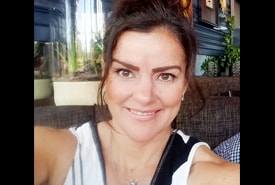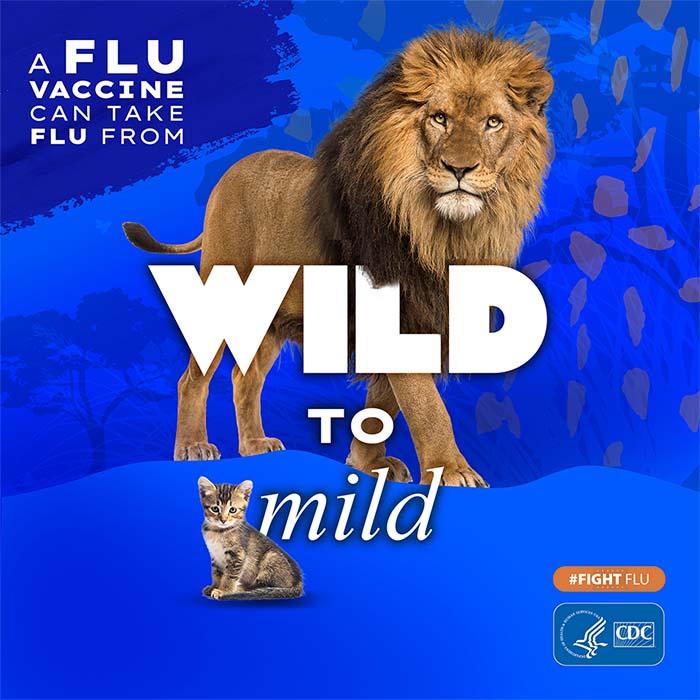Flu Fighters: Lee Itule-Klasen and Indira Arce
Meet flu fighters Lee Itule-Klasen and Indira Arce from Pima County, Arizona. Lee is a program manager and Indira is a senior evaluation specialist for the Racial and Ethnic Approaches to Community Health’s (REACH’s) Flu Awareness and Outreach Program at the Pima County Health Department (PCHD). Through REACH, Lee and Indira have been dedicating themselves to improving the health and lives of the different communities and populations in Pima County, specifically Native American and Latinx, by building relationships, providing health education and resources, and conducting outreach to increase access to flu vaccinations.
- How has flu impacted you personally? Why do you fight flu?
LEE: My parents are no longer alive, and my mother passed away from lung cancer. She lived with chronic bronchitis and other chronic obstructive pulmonary disease issues related to tobacco use. Because of this, it is incredibly meaningful to me to address public health challenges associated with recreational use of tobacco and community respiratory conditions. We also have a large, growing older adult population in both Pima County and Arizona. There is an incredible need to continue to build partnerships and trust to ensure we are taking the steps needed to provide resources and care for community members of all ages in both rural and urban areas of Pima County. This has been more important now, more so than ever, because of the pandemic crisis.
INDIRA: While I am not directly personally tied to flu, I am deeply involved with issues that impact the Mexican American community, and public health is dear to my heart. I was born in Durango, Mexico and immigrated to the United States when I was 9 years old to Palmdale, California and just 10 years ago moved to Tucson, Arizona. I also work in the Mexican American Studies department at the University of Arizona. The 2010 census shows that 37 percent of Pima county identifies as Hispanic/Latinx, and it’s important that we recognize that this group is disproportionally affected by health issues, with one of them being the flu. - How do you fight flu?
LEE: Our REACH team implements strategies to address a variety of components that make our programs successful. This includes quite a bit of community work, such as relationship building, convening of partners, and implementing mobile flu shot clinics throughout Pima County. We educate stakeholders by providing them with updates regarding local health priorities that are identified through the county health needs assessment and focus on how to systematically sustain the work being done at the local level. Our REACH team also provides outreach and resources related to flu awareness and COVID-19 health guidance through our robust Pima County Flu Awareness Media Campaign.
INDIRA: My primary goal is to prioritize cultural competency. I document how our programs are doing and perform evaluation designs to incorporate feedback to determine the best ways to reach our communities. I help PCHD implement media campaigns to promote people to get their flu shot and I provide a wider view to our targeted communities on how to protect themselves and their families from flu. - What would you say to those in Pima County who are hesitant about getting a flu vaccine?
LEE: I would encourage people to take a moment to communicate how they are feeling regarding news and information related to the flu, the flu vaccine, and the COVID-19 response. We are living in very challenging times and it is truly important to find the space where we can communicate our feelings with people and providers we trust, ask questions respectfully, and listen to each other without judgement.
INDIRA: Similar to Lee, I want people to know what flu is, what the benefits are that the vaccine provides, and I want to build trust within our community.


